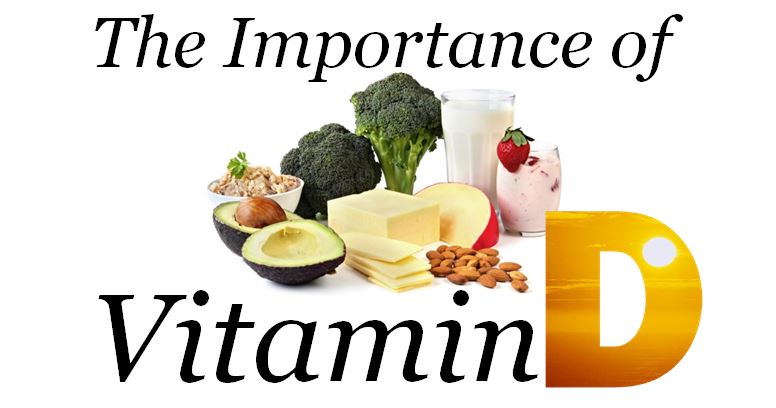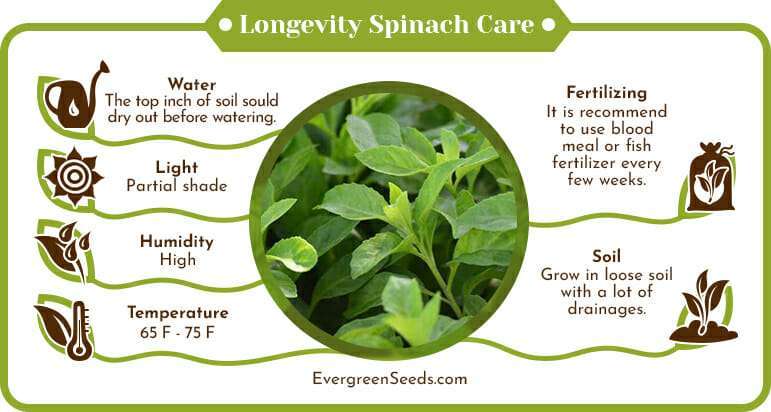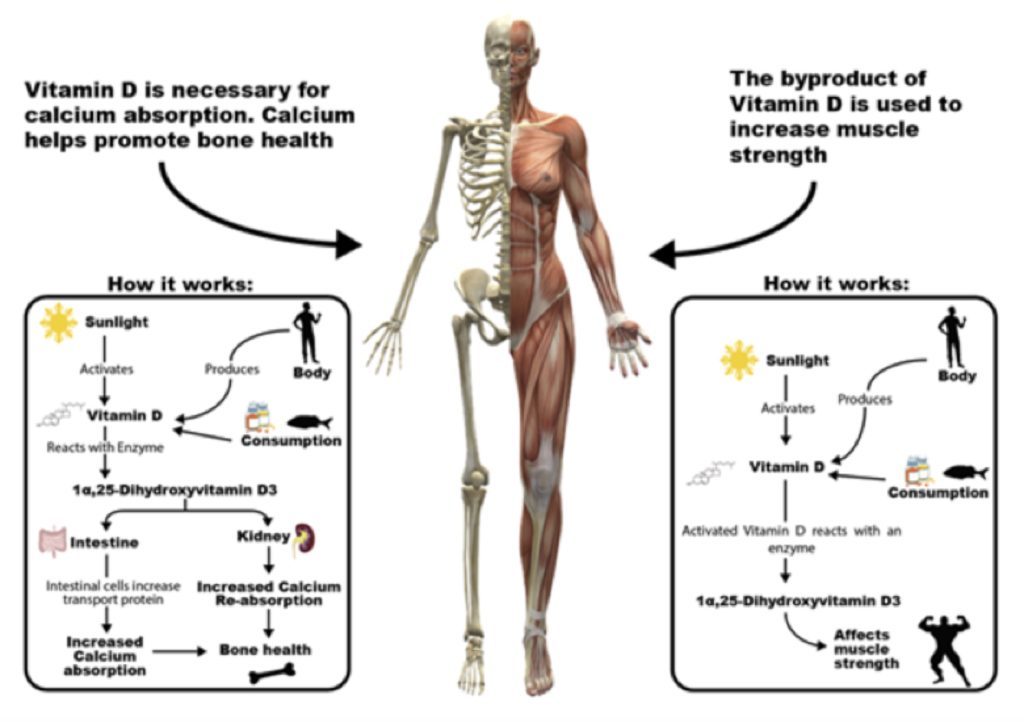Vitamin D is a vital nutrient that plays a crucial role in various aspects of our health. Beyond its well-known association with bone health, recent research suggests that adequate vitamin D levels may contribute to increased longevity. In this article, we will explore five helpful pieces of information about foods that are rich in vitamin D and their potential impact on longevity. By understanding the importance of vitamin D, discovering food sources that provide this essential nutrient, and recognizing the potential benefits for longevity, we can make informed choices to support our overall well-being.
1, Importance of Vitamin D.
Vitamin D is indeed a crucial nutrient with numerous important functions in the body. Here are some key points highlighting the importance of vitamin D:
Calcium absorption and bone health: Vitamin D plays a vital role in the absorption and utilization of calcium and phosphorus, which are essential for maintaining strong and healthy bones. It helps regulate the levels of calcium and phosphorus in the blood, thereby promoting proper mineralization of bones and teeth.
Immune system support: Vitamin D plays a significant role in modulating the immune system. It helps in the production and function of immune cells, including T cells and macrophages, which are crucial for fighting off infections and diseases. Sufficient levels of vitamin D are associated with a reduced risk of developing autoimmune diseases and a lower susceptibility to respiratory infections.
Cell growth and division: Vitamin D is involved in the regulation of cell growth and division. It influences the differentiation and proliferation of cells, which is important for maintaining healthy tissues and organs.
Bone density and fracture prevention: Inadequate levels of vitamin D can lead to reduced bone density and an increased risk of fractures, especially in older adults. Sufficient vitamin D levels help maintain bone health and can contribute to a lower risk of osteoporosis and fractures.
Mood and mental health: Emerging research suggests that vitamin D may have a role in supporting mental health. Low levels of vitamin D have been associated with an increased risk of depression, seasonal affective disorder (SAD), and other mood disorders. Adequate vitamin D levels may help support overall mental well-being.
Chronic disease prevention: Some studies have found associations between low vitamin D levels and an increased risk of chronic diseases such as cardiovascular disease, diabetes, certain types of cancer, and autoimmune disorders. While more research is needed to establish causation, maintaining optimal vitamin D levels may contribute to reducing the risk of these conditions.
Longevity and overall health: Adequate vitamin D levels have been linked to improved longevity. Several studies have found associations between higher vitamin D levels and a lower risk of mortality from various causes, including cardiovascular disease, cancer, and respiratory infections.
It's worth noting that obtaining vitamin D from sunlight exposure, fortified foods, and dietary sources such as fatty fish, eggs, and fortified dairy products can be beneficial. However, it may be challenging to obtain adequate levels through these sources alone, especially for individuals with limited sun exposure or certain medical conditions. In such cases, supplementation under the guidance of a healthcare professional may be necessary to maintain optimal vitamin D levels.
2, Food Sources of Vitamin D.
While sunlight is an important source of vitamin D, there are several food sources that can provide significant amounts of this vitamin. Here are some top food sources of vitamin D:
Fatty fish: Fatty fish like salmon, mackerel, trout, and sardines are excellent sources of vitamin D. They not only provide omega-3 fatty acids but also contain high levels of vitamin D. Canned fish, such as canned tuna and canned salmon, can also be good sources.
Fortified dairy products: Many dairy products are fortified with vitamin D. Milk, yogurt, and cheese are commonly fortified, and they can be good sources of this vitamin. Check the product labels to ensure that they are fortified with vitamin D.
Fortified plant-based milk alternatives: Plant-based milk alternatives like soy milk, almond milk, and oat milk are often fortified with vitamin D. Be sure to choose the fortified versions to get the vitamin D benefits.
Eggs: Egg yolks contain a small amount of vitamin D. While the exact amount can vary, consuming eggs can contribute to your vitamin D intake. Keep in mind that most of the vitamin D in eggs is found in the yolk, so it's essential to consume the whole egg to benefit from it.
Mushrooms: Some types of mushrooms, such as shiitake and maitake mushrooms, can naturally synthesize vitamin D when exposed to sunlight. These mushrooms can be a good option for individuals following a vegetarian or vegan diet.
It's worth noting that the amount of vitamin D in these food sources can vary, and it may be challenging to obtain sufficient vitamin D through diet alone, especially in regions with limited sunlight exposure or for individuals with specific dietary restrictions. In such cases, supplementation may be necessary to ensure adequate vitamin D levels. Consulting with a healthcare professional or registered dietitian can help determine the most appropriate approach to meet your vitamin D needs.
3, Longevity Benefits.
While there is evidence suggesting a potential link between higher vitamin D levels and increased longevity, it's important to note that more research is needed to establish a definitive relationship between vitamin D and longevity. While studies have shown associations between adequate vitamin D intake and a reduced risk of chronic diseases, including cardiovascular diseases, certain types of cancers, diabetes, and autoimmune disorders, it is challenging to determine causality and the specific impact of vitamin D on longevity.
Several mechanisms have been proposed to explain the potential benefits of vitamin D on longevity. For example, adequate vitamin D levels are associated with improved cardiovascular health, reduced inflammation, enhanced immune function, and better regulation of cell growth and division. These factors could contribute to a reduced risk of chronic diseases and ultimately impact longevity.
However, it's important to consider that many other factors influence longevity, including genetics, lifestyle choices, diet, physical activity, and overall health status. Vitamin D is just one piece of the puzzle, and its impact on longevity is likely influenced by the complex interplay of various factors.
To better understand the relationship between vitamin D and longevity, further research, including randomized controlled trials and long-term observational studies, is necessary. These studies would provide more robust evidence to determine the potential role of vitamin D in promoting longevity and preventing age-related diseases.
In the meantime, maintaining optimal vitamin D levels through a combination of safe sun exposure, consuming vitamin D-rich foods, and, if necessary, supplementation under the guidance of a healthcare professional, can contribute to overall health and potentially support healthy aging.
4, Vitamin D and Bone Health.
Vitamin D plays a crucial role in supporting bone health by facilitating the absorption of calcium and phosphorus from the intestines. Here's how vitamin D contributes to bone health:
Calcium absorption: Vitamin D helps regulate the absorption of calcium in the small intestine. Without sufficient vitamin D, the body may struggle to absorb an adequate amount of calcium, even if the dietary intake is sufficient. Calcium is a vital mineral for bone health, as it provides strength and structure to bones and teeth.
Calcium utilization: In addition to aiding calcium absorption, vitamin D helps ensure that the calcium obtained from the diet is effectively utilized within the body. It helps maintain calcium levels in the blood within a narrow range, which is important for various physiological processes.
Bone mineralization: Vitamin D promotes the mineralization of bones by helping incorporate calcium and phosphorus into the bone matrix. This process is necessary for maintaining optimal bone density and strength. Adequate vitamin D levels contribute to the prevention of conditions like osteoporosis, which is characterized by low bone mass and increased susceptibility to fractures.
Fracture prevention: Insufficient vitamin D levels can lead to reduced bone density and increased fragility, increasing the risk of fractures, particularly in older adults. Studies have shown that maintaining adequate vitamin D levels can reduce the risk of fractures, especially in postmenopausal women and elderly individuals.
It's important to note that vitamin D works in conjunction with other nutrients, such as calcium and vitamin K, to support optimal bone health. A balanced and varied diet that includes calcium-rich foods, along with adequate vitamin D intake, regular weight-bearing exercise, and avoiding negative lifestyle factors (such as smoking and excessive alcohol consumption), all contribute to maintaining strong and healthy bones.
If you're concerned about your vitamin D levels or bone health, it's advisable to consult with a healthcare professional who can assess your individual needs and recommend appropriate strategies to support your bone health and overall well-being.
5, Supplementation and Sun Exposure.
While obtaining vitamin D from food sources is beneficial, it can be challenging to meet daily vitamin D requirements through diet alone. Factors such as geographical location, season, time spent indoors, skin pigmentation, and the use of sunscreen can limit the body's ability to synthesize vitamin D from sunlight.
In cases where it's difficult to obtain sufficient vitamin D through sunlight and diet, vitamin D supplementation can be a useful option to ensure adequate levels. However, it's important to consult with a healthcare professional before starting any supplementation regimen. They can assess your individual needs, consider your medical history and current health status, and guide you on the appropriate dosage and duration of supplementation.
Vitamin D supplementation is available in various forms, including capsules, tablets, and liquid drops. The recommended dosage may vary depending on factors such as age, existing health conditions, and vitamin D levels measured through blood tests. It's crucial to follow the guidance of a healthcare professional to ensure you're taking the right dosage and monitor your vitamin D levels over time.
It's worth noting that excessive vitamin D supplementation can lead to toxicity, known as hypervitaminosis D. This can cause adverse effects such as hypercalcemia (elevated calcium levels in the blood), kidney problems, and other health complications. Therefore, it's essential to follow the recommended dosage and seek medical guidance when considering vitamin D supplementation.
Remember, each person's vitamin D needs may differ, so consulting a healthcare professional is vital to determine the most appropriate approach for maintaining optimal vitamin D levels based on your specific circumstances.
In conclusion, incorporating foods rich in vitamin D into our diets can have a positive impact on our health and potentially contribute to increased longevity. Vitamin D plays a vital role in bone health, immune function, and cell growth, making it an essential nutrient for overall well-being. While fatty fish, fortified dairy products, eggs, and mushrooms are excellent sources of vitamin D, supplementation may be necessary in certain cases to ensure adequate levels. However, it is essential to consult a healthcare professional for personalized guidance. By prioritizing vitamin D intake and maintaining a balanced lifestyle, we can optimize our health and potentially enhance our longevity. Remember, small dietary changes today can lead to significant health benefits and a better quality of life in the long run.





Comments
Post a Comment